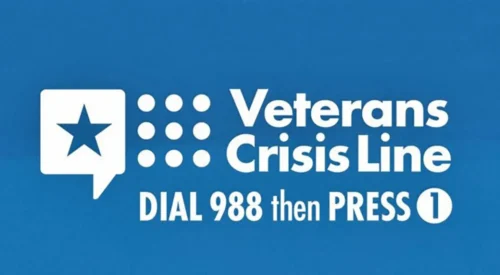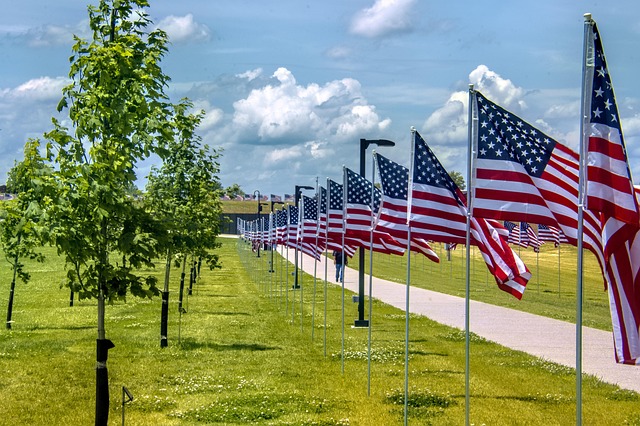What Veterans Need to Know About COVID-19

COVID-19: What Veterans Need to Know
As a veteran, you might be concerned about COVID-19 and what the Department of Veterans Affairs (VA) and its medical facilities are doing to protect and care for veterans during this pandemic.
For up-to-date info on what organizations are doing to help during this unprecedented crisis, please visit –
Help For Military Families During COVID-19 Pandemic
Here is what has been put out by the House Committee on Veterans’ Affairs:
What Should You Do If You Think You Have COVID-19?
Thinking you might have COVID-19 is a scary thought, but it is important to stay calm. If you are experiencing symptoms, such as fever, cough or shortness of breath, you are encouraged to call your VA medical facility or you can call MyVA311, which is 844-698-2311, press #3 to connect. You can also send secure messages to your health care providers through MyhealtheVet, which is the VA’s online patient portal.
VA clinicians will evaluate veterans’ symptoms and direct you to the most appropriate providers for further evaluations and treatment. Then you will know that the right steps are being taken if you feel you could be sick with COVID-19.
What Should You Do If You Have A Routine Appointment?
You might have a regular appointment scheduled that you are not sure what to do about. If this is the case, the VA is encouraging you to call your VA facility before seeking any care. Some appointments may be converted to video chats too. You can also request telehealth appointments from your VA providers.
What About Visiting VA Facilities?
The VA is urging visitors that don’t feel well to postpone any visits to VA medical facilities. They will also have a limited amount of entrances through which visitors can enter the facility. All patients, visitors, and employees will also be screened for COVID-19 symptoms and possible exposure.
What About VA Nursing Homes and Spinal Cord Injury Units?
It is important to know that both of these facilities will be closed to all outside visitors. Clinical staff will be screened for COVID-19 daily and staff will only work within those units. Exceptions can be made for cases of when a veteran is in a hospice unit or an inpatient spinal cord injury unit.
What About Congress? What Are They Doing to Help?
The CARES Act was passed and signed into law which will give each American with a social security number a payment, either $1,200 or $2,400 for married couples. This is meant to help relieve some of the financial impacts of the COVID-19 pandemic.
Some veterans might not normally file a tax return but in order to receive the payment, you will need to. You can visit the IRS website for more information on this and find out what you need to do in your specific situation.
What If I Am A Student Veteran?
Legislation was passed on March 19, 2020 to ensure that student veterans will receive waivers for classes that will now be online instead of in-person because of the pandemic. This will allow student veterans to be able to maintain their current monthly housing allowance rate under the legislation.
RELATED: Congress to Stop Coronavirus’ Impact on GI Bill Rates
The VA’s Response to the COVID-19 Pandemic
House Committee on Veterans’ Affairs Chairman Mark Takano (D-Calif.) led A Bipartisan Letter with Ranking Member Dr. Phil Roe (R-Tenn.) and 25 of their Committee colleagues to Secretary Wilkie asking for answers on VA’s response to the COVID-19 pandemic in addition to daily and weekly updates. You can read the letter here.
What Has Been Done to Help Stop the Spread of Covid-19?
The House Committee on Veterans’ Affairs has taken the following actions:
- Worked to eliminate copayments for testing and medical appointments for veterans
- Received continuous updates on VA’s COVID-19 response and emergency preparedness
- Continued Committee oversight of VA’s mission to respond to a national emergency
- Protected student veterans
- Ensured VA’s ability to maintain continuity of operations
You can read more about what they have done here.
What Else Can You Do to Keep Yourself and Your Family Safe?
- Make sure you are following the CDC related guidelines
- Follow the guidelines put out by the VA and any VA facility you need to visit
- You can email the Committee on Veterans’ Affairs at Majority@Mail.House.Gov if you or a veteran you know needs their assistance.
- You can also email them any stories that could help inform the Committee’s oversight of the VA’s response to COVID-19.
- Follow the guidelines and requirements of your local city and state.
- Manage your mental health and stress. You can visit this VA website to help.
We are all going through an unprecedented time as we try to navigate COVID-19 and what it means for our daily lives. Stay safe, and watch for any updates that might affect you and your family.
RELATED:
- Organizations That Help Military Kids and Families
- Online Military Discounts To Use During Covid-19 Lockdown
- New Military Family Readiness Legislation Can Help Military Families
- Wounded Warrior Project’s COVID-19 Relief Program
- VA Aid for Homeless During COVID-19
About the author
Julie Provost is a freelance writer, and blogger. She lives in Tennessee with her National Guard husband and three boys.


